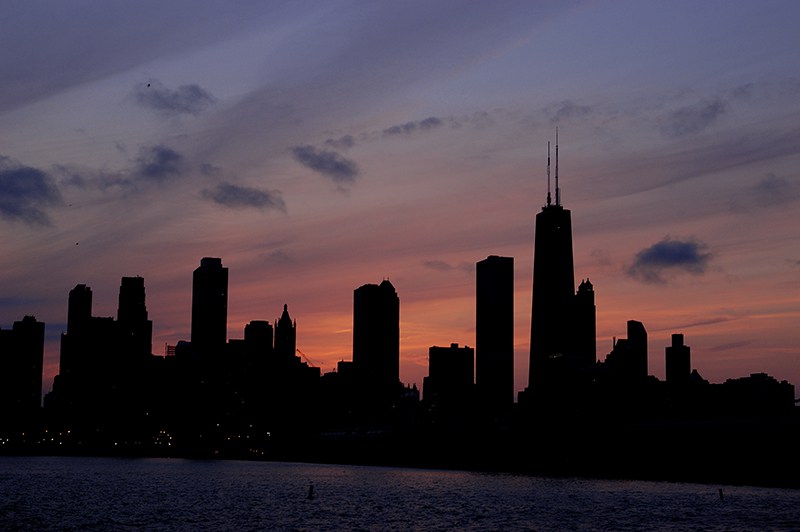
The Prepping Community’s most active discussion revolves around preparing for disasters. Not that disasters or zombies are our only focus. The broader topic of prepping involves a lot of discussion and debate on various subjects. At the end of the day though, it comes down to how prepared you are when that disaster that forms the motivation behind our prepping, strikes. We can talk tactics and strategy all day long. We can debate which firearms are best or even necessary if the grid goes down. We can plan to defend our neighborhoods from looters or scoff at the notion that something like that could be necessary. We could write tomes on a thousand ways to build a fire out of nothing more than belly button lint and a tennis shoe, but when the disaster happens you are going to be playing the hand you are dealt. At that time, you will not be able to run to the store most likely for those last-minute supplies and what you have in your pantry or stored in your basement will be what you have to ride out that disaster.
Whatever skills you have learned will be at your disposal, but those plans for that tactical pistol class you kept putting off will be just that, plans. The best intentions to take that Wilderness First Responder class that you had meant to look into for the spring would be of no value to you. The garden you had been putting off for 10 years never got created and now, that grassy patch in your backyard is still not producing anything that will keep you alive.
Time’s Up! How Prepared Are you?
One of the motivations that drive my prepping efforts is the concern that if something happened today I would only have what I have. Don’t get me wrong, I wouldn’t be that bad off, but I wouldn’t have everything I think would be ideal in my ideal situation. I also know that having a couple of years’ worth of freeze-dried food doesn’t ensure you will live through any disaster, but every little bit helps.
Prepping is a series of steps that you can take toward a set of goals. You can start at a million different places and I know that there are different situations each of us face that make our personal preparation story different from person to person. However, there are some things that I think are universal that we all need in order to live.
There are certainly other things you need to live in an ideal state. For example, the list above doesn’t take hygiene or medical needs into consideration. You certainly won’t find an entertainment option above; that is unless your idea of fun is shooting water bottles, but the list above is what I consider the most important categories for survival.
If disaster happened today, how prepared are you? If you faced TEOTWAWKI this afternoon as you pulled into the driveway, how would you fare? Try this exercise when you get home tonight. Sit down with a piece of paper, take a look at all of your various prepping supplies, grab a pencil and ask yourself the following questions.
Before you start, here are the ground rules:
Assumptions – First off, when the disaster strikes, you are not able to run out to the store for anything. Some crisis has happened. The power is out and you are unable to leave your immediate area out of safety concerns. You are unable to bug out at the present time and are forced to shelter in place. There is no imminent danger but all services are completely inoperable.

Water
Q. – How much water do you have stored for each person you are prepping for?
Q. – Do you have a source for water when your stored water runs out? Do you live near a lake, pond or have a stream nearby?
Q. – Do you have a means to purify your water?
How prepared are you when it comes to water?
Now that you have asked yourself the questions above, where do you stand in the water category?
-
- The recommended amount of water stored is one gallon per person per day. If your water supply is contaminated like the several instances that happened, specifically Charleston, VA will you have water to drink, cook with and bathe?

- Water is more easily stored in larger containers, but this is a space consideration. 7 gallon water containers that stack are easy to use, carry and allow you to begin your water storage plans.
- Water Containers should be clean and ideally have not had any other chemicals or liquids in them.
- Unless you have a NORAD style bunker under your home, I would bet money you don’t have a ridiculous amount of water stored so whatever you have will run out.
- Bodies of water and even rain barrel systems provide the best redundant source of water, but you will need to figure out how you will carry water to and from. I recommend a heavy duty yard cart to easily carry the weight of even a few dozen gallons.
- There are many ways to make water safe that are detailed on several posts from Final Prepper. My personal preferred method is gravity filters. For home use that can easily handle several gallons at a time, I have a Big Berkey. If I am on the go, such as bugging out, I think a filter like the Platypus GravityWorks makes getting safe water, nearly effortless. This method could work for home too, but the Big Berkey has a much higher capacity.
Do you need to stock up more or are you OK? If so, for how long? Evaluating this list of questions myself, I admit I am not where I would like to be ideally. I have several hundred gallons of capacity, and plenty of renewable resources, but I would like to increase my in-home storage. I am also looking to increase rain storage capacity with a 250 gallon tank. Something for me personally to work on.

Food
Q. – How many calories do you have stored for each person you are prepping for?
Q. – Do you have a source of food once your stored food is gone?
Q. – Do you have capacity to store foods that do not require refrigeration?
How prepared are you with food?
Now that you have asked yourself the questions above, how are you doing in the food department?

-
- Averaging 2000 calories a day for a grown person who isn’t doing intense physical labor is our baseline. I know I eat more than that on any given day, but I certainly don’t need to. Inventorying your food with an eye towards calories takes some work but can open your eyes. For example, one of the easiest ways I think you can quickly and economically stock up on food is to buy 50 Lb. bags of Rice. Each bag is about $20 and has 504 servings. Divide that by the number of people in your family, then the number of times a day you plan on eating rice and you will get an idea of how many meals (at least the rice part) will provide.
- Freeze Dried foods are sold different ways. In some cases, like with Mountain House and other backpacking friendly meals these are sold to feed one or two people so those are easy to count. MRE’s would be simple too, but if you have bulk freeze-dried foods you will need to do a little more math. I purchase mine with the understanding that I was buying a person’s rations for a set period of time so I already have that amount calculated.
- What about canning food or keeping it after you don’t have the Sam’s Club? Do you have canning supplies? Do you have years’ worth of lids or reusable canning lids?
- Do you have a garden that is already producing fresh vegetables, that you actually eat? What about seeds to last a few years? Have you looked at the calories of your seeds and how much that will provide assuming you have zero crop issues?
Once I went over my own inventory, I think we are pretty good in the short-term for food although, even a great garden that is producing gang busters isn’t going to be enough. Additionally, our garden plot right now wouldn’t support us so it would need to be doubled most likely. The good news is that we have the room and capacity to do that if needed and enough food stores to last.
Shelter
Q. – How close do you live to major metropolitan areas?
Q. – Do you have a safe room or other hardened structure?
Q. – Do you have backup power?
Q. – Do you have backup heat?
Q. – Do you have alternate ways of cooking food?
How prepared are you with shelter?
Now that you have asked yourself the questions above how are you in the shelter category? In my assumptions above, I said that you were forced to shelter in place so what could we consider if your home really was your round the clock location?
-
- You are forced to shelter in place, but that doesn’t mean others will. If you live close to major cities, you could have to worry about the Golden Horde. How does this factor into your plans?

- In the assumptions there is no need to defend your property now, but as much as possible, how will you harden your home to prevent access by bad people?
- Most backup power solutions revolve around generators and keeping a lot of fuel stored. Do you have both? Do you have a solar option that is robust enough to do more than charge a cell phone, in 8 hours? What will you do when the fuel is gone?
- For some, cooking outside will be difficult. What if you live in an apartment? I would look into camping stoves or stocking propane for that grill on your deck.
- Backup heat is best from a wood burning stove, but many of us don’t have that capability. Kerosene heaters and when all else fails, wearing warm layers would be necessary. Do you have plenty of each if that is the case?
Shelter is a mixed bag for me because I do live in a suburban setting like so many of you. Our home can only be made so safe and that is a concern that would require me to escalate actions according to the situation. I won’t be barricading the front door and windows with sandbags just yet, but that would be a worst case option. Cooking wouldn’t be an issue for us because I have several methods and plenty of wood. Heat would be an issue with our existing gas log fireplace. Even if the gas was out, the chimney would need to be cleaned before I could safely burn wood in there again. It does me no good to burn the house down.

Security
Q. – Do you have any experience with firearms and/or specialized training? Air-soft doesn’t count guys.
Q. – How many firearms do you have on the premises? How many rounds of ammo do you have for each caliber?
Q. – Do you have any spare parts for your firearms? What about cleaning supplies for your weapons?
Q. – Do you have force multipliers like communications, night vision, and body armor or surveillance systems?
Q. – How many able-bodied defenders do you have in your prepping group?
How prepared are you with security?
Now that you have asked yourself the questions above how are you in the security category? In my assumptions above, I said that there is no imminent danger but all services are completely inoperable so I can imagine that with that chaos, there would be danger eventually.
-
- When bad times happen, bad people do bad things. I know that sounds trite, but it is one of the most easily predictable human behaviors. Chaos and fear will cause irrational behavior and even deadly attacks can be viewed as justified in the eyes of a mother with hungry children. Charity and grace is something we have addressed in other posts, but you will need to be able to defend yourself if you truly expect to make it through TEOTWAWKI. If you do not accept that simple principle, you will be taken advantage of.

- You have to be able to use any firearms you have. That means three things to me.
- You must have the will to use them if needed to defend your life.
- You must know how to use them properly in high stress situations.
- You must have ammo to use them at all.
- There is strength in numbers. No matter who that group is, generally speaking the more people you have to defend yourself, the better able you will be to defend yourself.
Security is one area I think I am pretty well off in one sense but still have a way to go in a lot of other ways. My “group” is largely my family and not a bunch of Navy Seals. We have training and capacity, but it isn’t like I have a bunch of guys who will go screaming off into the woods to attack anyone. Security for now will be focused on defense and I still need to work on offensive capabilities and training.
What’s your score?
Yes, this is a nod to the scoring system that National Geographic’s Doomsday preppers had on it, but that system was problematic to me. Even so, I think it does make sense for each of us to try and figure our how long we could survive. I put my own efforts at well over a year but that is what I think on paper. Reality gets a vote so I could be wrong. We could have some pest infestation in our garden, or while I was taking a siesta, deer could eat all my tomatoes. You never know, but starting to visualize where you are now will help you get to where you want to be.
So the question is, how prepared are you?





















